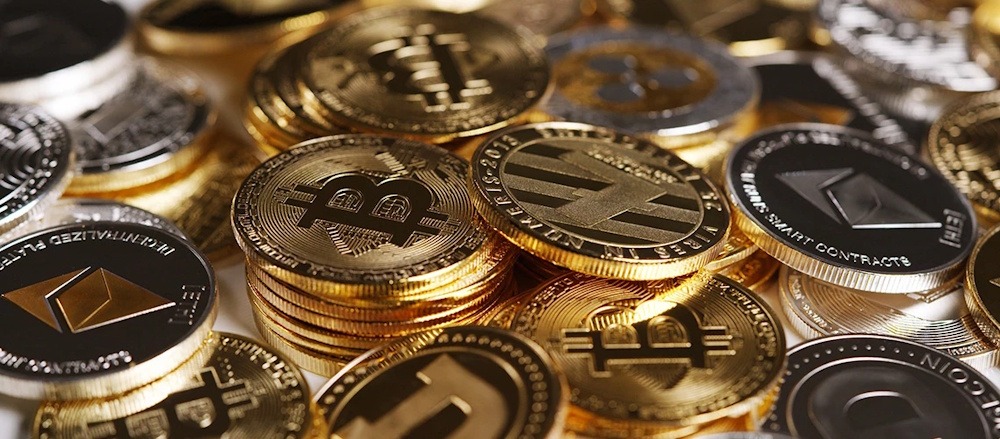A competitive push by cryptocurrency firms to launch tokens linked to stocks is triggering concerns among conventional financial institutions and regulatory authorities. They caution that these rapidly emerging products could jeopardize investor safety and the overall stability of the market. With President Donald Trump’s favorable position on cryptocurrency and his administration’s efforts to implement supportive regulations, the crypto industry is eager to seize the opportunity presented by a worldwide increase in excitement for the sector. Robinhood, Gemini, and Kraken, among others, have launched tokenized stocks in Europe. Meanwhile, Coinbase, Robinhood, and startup Dinari are seeking approval to launch similar products in the United States. Last month, Nasdaq made headlines as the first major exchange to propose the offering of tokenized shares.
Experts in the field assert that tokenized shares — blockchain-driven assets that mirror traditional equities — have the potential to transform stock markets by enabling round-the-clock trading and instantaneous settlement, thereby enhancing liquidity and lowering transaction expenses. The total market capitalization of tokenized public stocks aimed at retail investors reached $412 million as of September, a significant increase from only a few million dollars a year prior. While numerous products are promoted similarly to stocks, they seldom provide the same rights, disclosures, and protections that come with traditional equities. Critics argue that this raises risks for investors, as tokenization could potentially compromise market integrity and fragment liquidity if not properly regulated. “You’re acquiring exposures to those shares by creating a type of synthetic instrument,” stated Diego Ballon Ossio. “Much of the responsibility falls on you to grasp precisely what it is that you’re purchasing.”
A handful of companies have launched their own experimental stock tokens on the blockchain, which serves as a shared digital ledger. However, the majority of tokenized shares are linked to public companies and are issued by third parties such as Ondo Global Markets and Dinari. Certain tokens are supported at a 1:1 ratio by underlying stocks, whereas others offer economic exposure via derivatives. The Aden Solar Power Plant is providing energy to hundreds of thousands of homes in a nation that has faced an electricity crisis for thirty years. The landscape is fragmented regarding the applicable regulations for stock tokens, leading to a disparity in investor rights and protections. Frequently, these products lack ownership, voting rights, or conventional dividends, simultaneously introducing counterparty risk associated with the token issuer. For instance, various tokens are linked to Nvidia and Tesla, featuring a diverse array of structures and terms and conditions. “The fact that different tokenized offerings have different rights and different disclosures … that’s a real big worry,” said Gabriel Otte. In June, Robinhood initiated trading in tokens linked to public companies and announced its intention to provide tokenized stocks of private companies. In a strategic move to generate buzz for the launch, the initiative distributed tokens linked to OpenAI. According to its terms and conditions, those tokens represent derivative contracts that are supported by Robinhood’s ownership of fund units in a special-purpose vehicle holding OpenAI convertible notes, opens new tab. The announcement faced criticism from OpenAI, which stated it had not endorsed the offering. It has also attracted attention from the European regulator overseeing Robinhood.
Johann Kerbrat emphasized that the company distinctly indicates that its tokens are derivatives. “It’s just one step forward to be able to have the benefits of no longer having multiple days to settle,” he added. According to a spokesperson, Robinhood is currently issuing public company tokens on the blockchain; however, it has not yet begun to settle trades on the blockchain. In Europe, Robinhood, Kraken, and other platforms are functioning under the “MiFID” derivatives regulations; however, certain legal experts argue that this legislation falls short in adequately regulating the innovative products emerging in the market. Paul Atkins, the crypto-friendly chair of the U.S. Securities and Exchange Commission appointed by Trump, has signaled that the agency intends to provide exemptions from securities regulations for potential issuers. The plan is encountering resistance from influential Wall Street entities, notably Citadel Securities and the Securities Industry and Financial Markets Association, who argue that significant structural changes ought to undergo a formal rulemaking process. “Just because a security is represented on blockchain, that doesn’t change the core investor protections and other provisions that apply to securities,” stated Peter Ryan. In a letter to the SEC dated July, Citadel Securities expressed concerns that tokenization could drain liquidity from public markets. Representatives from the SEC refrained from making any statements, and Citadel Securities offered no further remarks beyond the contents of the letter.
A representative from the European Securities and Markets Authority, the body responsible for overseeing MiFID, stated that it is cognizant of the potential risks associated with tokenization and is actively monitoring the situation. The World Federation of Exchanges has recently called on regulators to take action against tokenization, highlighting concerns over inadequate investor protections and liquidity fragmentation. However, the group expressed support for Nasdaq’s proposal, stating that it would classify tokens in a manner akin to traditional stocks. According to a source, Coinbase is in discussions with the SEC regarding the launch of tokenized securities that would provide investors with the full legal rights and benefits akin to those of traditional stocks. Other issuers indicated that they adhere closely to traditional securities regulations, anti-money laundering measures, bankruptcy protections, and various other rules. Mark Greenberg, Kraken’s global head of consumer, stated that the company provides the “gold standard,” featuring 1:1 collateralization and investor disclosures, while he dismissed derivative offerings as “IOUs.” Ian De Bode stated “Done right, tokenization enhances investor protections, rather than eroding them.”

